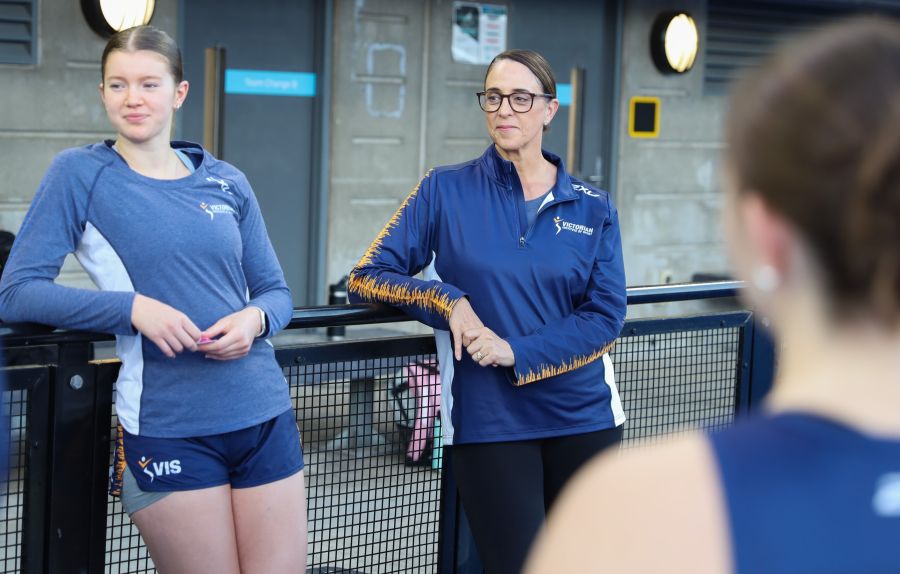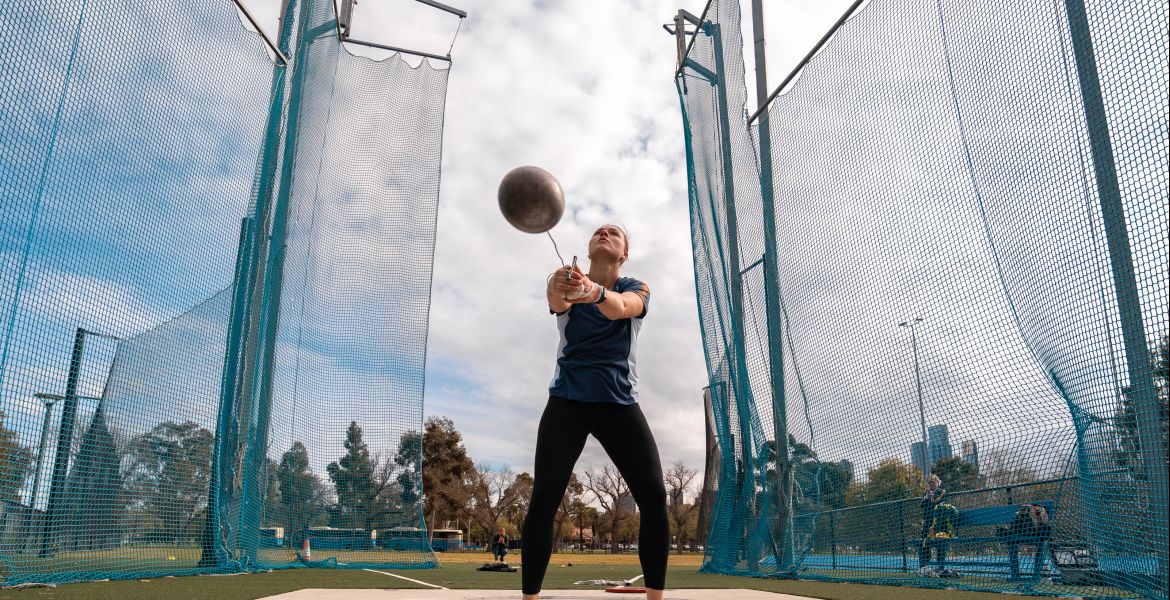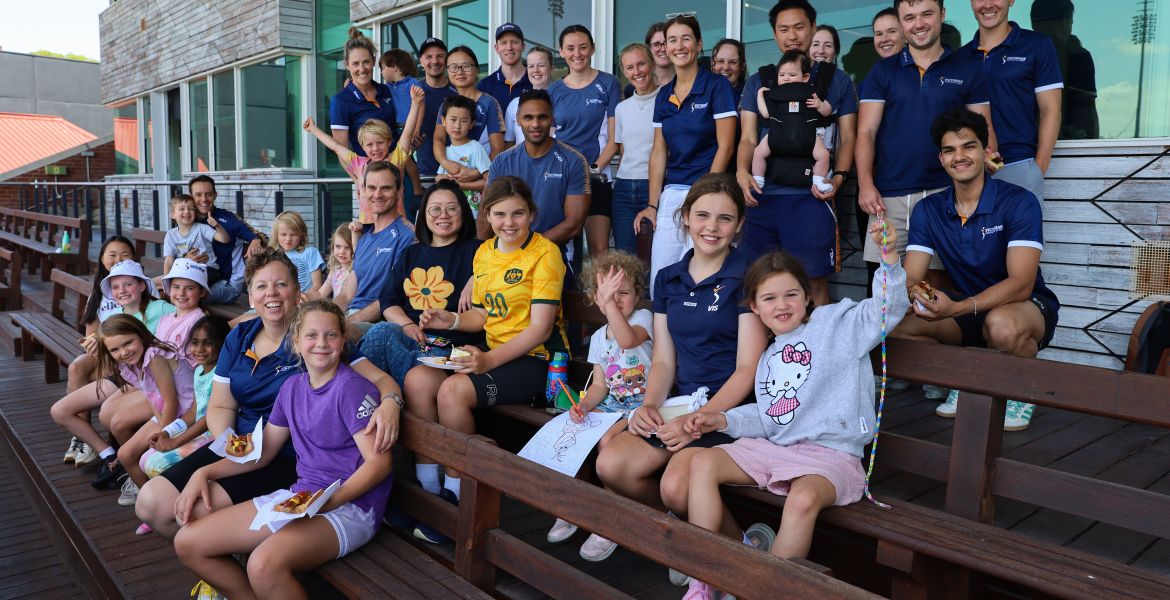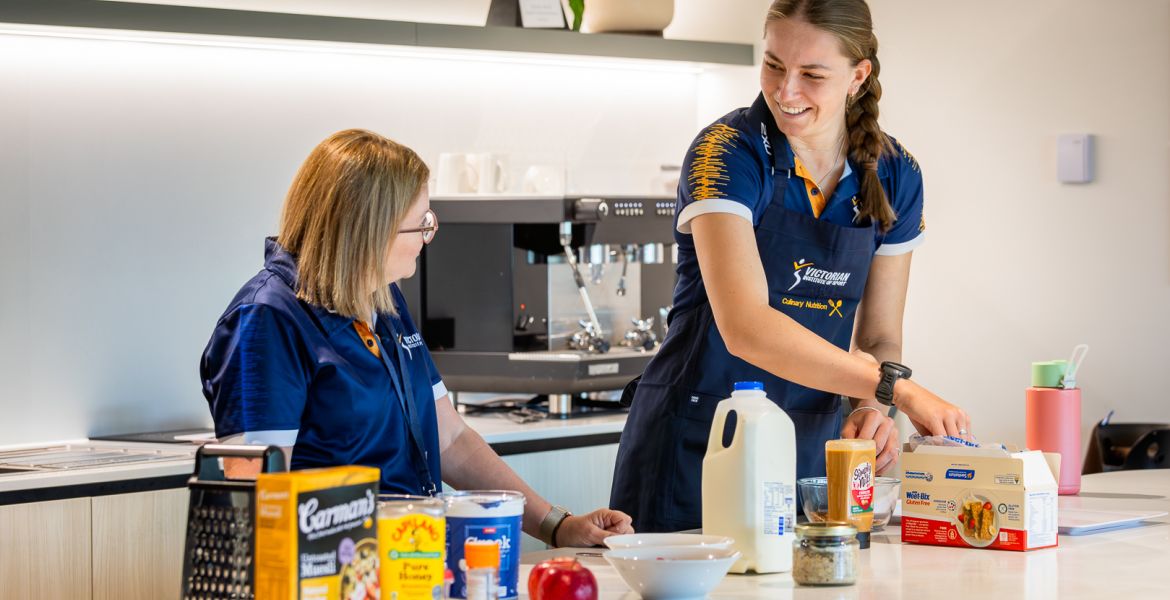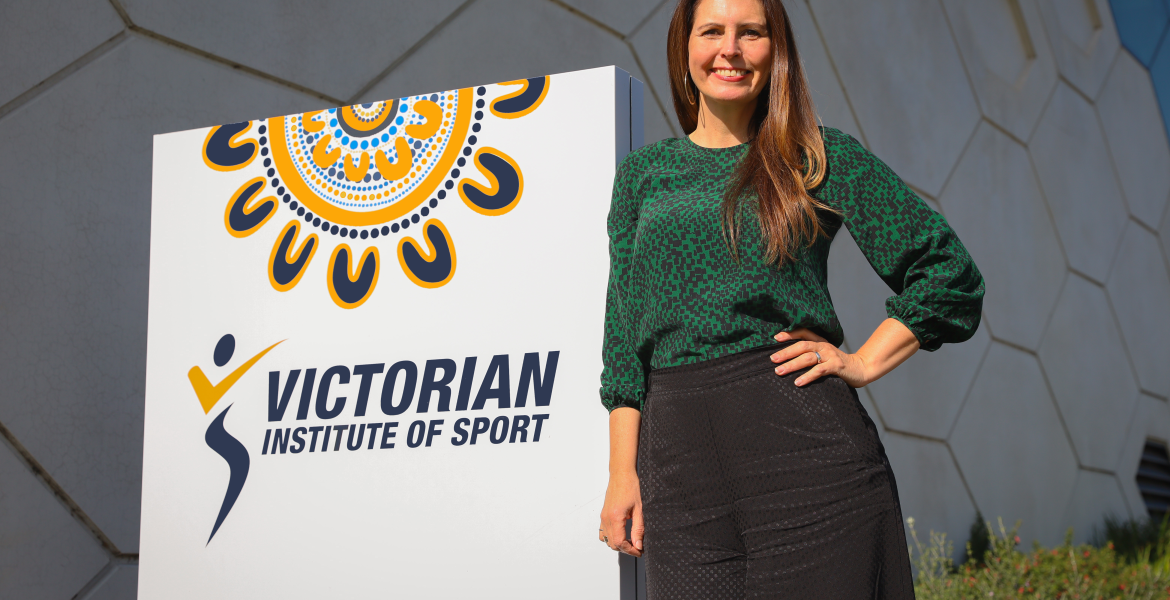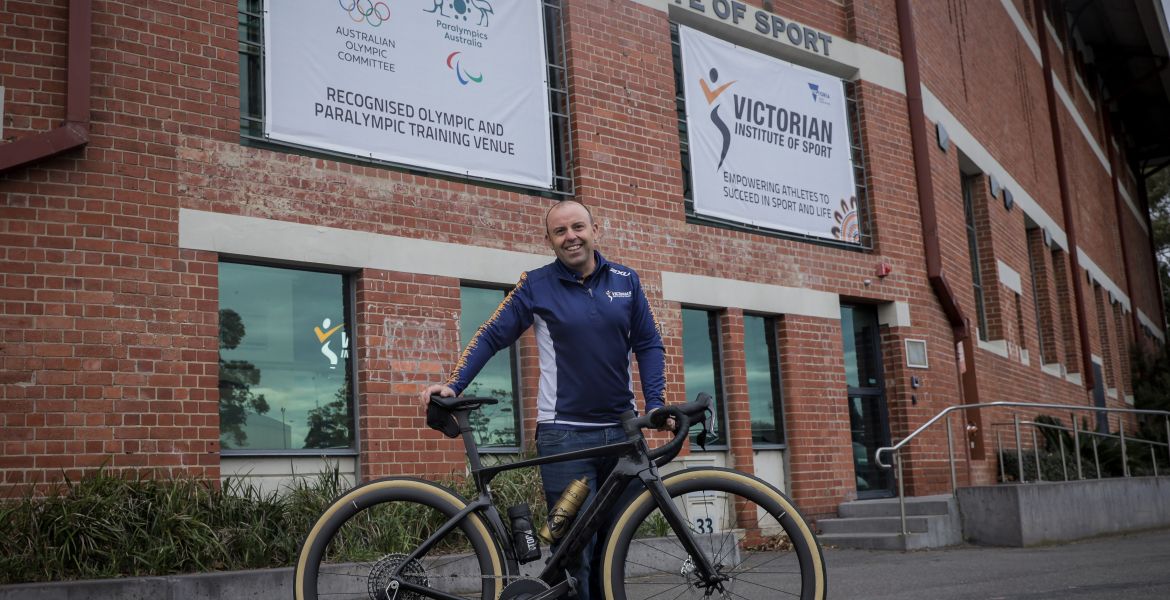Livingstone is only the third CEO since the Victorian Institute of Sport’s (VIS) inception in 1990 and has proudly taken the reins from long-time CEO Anne Marie Harrison, who succeeded the inaugural Executive Director, Dr Frank Pyke.
A three-time Olympic swimmer and deemed one of Australia’s greatest backstrokers, Livingstone is a natural leader for the organisation - gregarious and passionate about the athletes, employees and the culture.
In her first 100 days, she has prioritised getting to know the people that make up the organisation.
“Meeting our athletes and support staff has been important for me in my first 100 days. Having conversations with them around what they think and feel about the VIS, and where they see us heading,” Livingstone says.
As one of the VIS’ foundation scholarship holders in 1990 and becoming Chair in 2016, Livingstone is equipped with a unique perspective that is enabling her to now flourish as CEO.
“It is a different perspective now being back at the VIS, which has always felt like a home for me.”
“Being in the CEO role is about listening and engaging with people, not just people that are here connected to the VIS, but the broader Victorian community. Part of my work is to create an understanding of what it is that we do, why we are unique and why we are so good at what we do,” she says.
It is a crucial time for Livingstone to step back into the VIS as the organisation embarks on the exciting journey toward the Los Angeles 2028 and Brisbane 2032 Olympic and Paralympic Games.
“We have a lot of milestones that we are working towards, including the 2026 Milano Cortina Winter Olympics and Paralympics, 2026 Glasgow Commonwealth Games and the 2028 Olympics and Paralympics in LA.”
Livingstone has already put a range of initiatives in motion that is aiming to set the VIS and its athletes up to succeed at the benchmark events, while also contributing to the Australian high-performance system’s goal of making the Brisbane Games its most successful in the country’s history.
“We are currently working on a new strategic plan that will not only take us through to the LA Olympic and Paralympic Games, but then onto the 2032 Brisbane Games. The longer strategy provides us with the ability to continue programming towards Brisbane and contemplate the year after to include the legacy piece of having a home Games,” Livingstone says.
An initiative she is passionate about is the creation of an Athlete Advisory. The committee, which will be made up of current VIS scholarship holders and alumni, will be a first for the VIS, with appointments of the advisory members already in motion.
The group will represent the views of the athletes to the VIS and make recommendations on matters of importance to help ensure athletes have a voice.
“The Athlete Advisory group is important for us to be able to hear from our athletes in terms of the way we shape our future,” Livingstone says.
Creating an athlete experience and environment like no other is at the forefront of Livingstone’s mind and she has been looking at ways the VIS can create more resources for the athletes.
In 2025 the VIS will be launching a project together with the Australian Sports Foundation (ASF). ASF is Australia's leading nonprofit sports fundraising and charity body and has been assisting sports and athletes for over 30 years.
The VIS prides itself on being home to athletes who not only succeed on their respective playing fields but also in life outside of sport. Livingstone is no stranger to that, living and breathing the VIS motto of Success in Sport and Life.
She is working to implement a VIS Employment Program that will create more opportunities for athletes to further their careers outside of sport.
“We have identified a unique opportunity to assist VIS athletes with flexible work options and internships with VIS alumni and businesses, aligning with the work of the VIS Performance Lifestyle team,” she says.
Livingstone has also overseen a handful of new appointments at the VIS including the employment of the organisation’s first Connection to Country Officer, proud Wadawurrung man Jamie McPherson.
The creation of the role and appointment was part of the VIS’ commitment to The HP2032+ High Performance Sport Strategy to foster a culturally safe, connected and inclusive high-performance sport environment in Victoria.
“The VIS is committed to ensuring that all athletes, coaches, performance support staff, and senior leaders have knowledge and understanding of Aboriginal and Torres Strait Islander cultures, and the challenges they may face in the high-performance sport environments”, said Livingstone.
Livingstone is enormously passionate about the role sport plays in our community and knows first-hand the power of VIS’ Community Programs, including the long standing Be Fit. Be Well program, delivered through a partnership with School Sport Victoria.
Since 1994, over 300,000 children have experienced the program, brought to them by VIS athletes who visit schools all over the state - this number is only set to increase under Livingstone’s stewardship.
It is safe to say that the CEO’s first 100 days have been busy with no indication of slowing down as the VIS has also started its search for a new High Performance Director.
“As a key member of our executive leadership team, I’m looking forward to working closely with them to deliver the performance outcomes of the VIS in relation to Australia’s WinWell 2032+ strategy and beyond.”
By Camilla Blands
Victorian Institute of Sport

